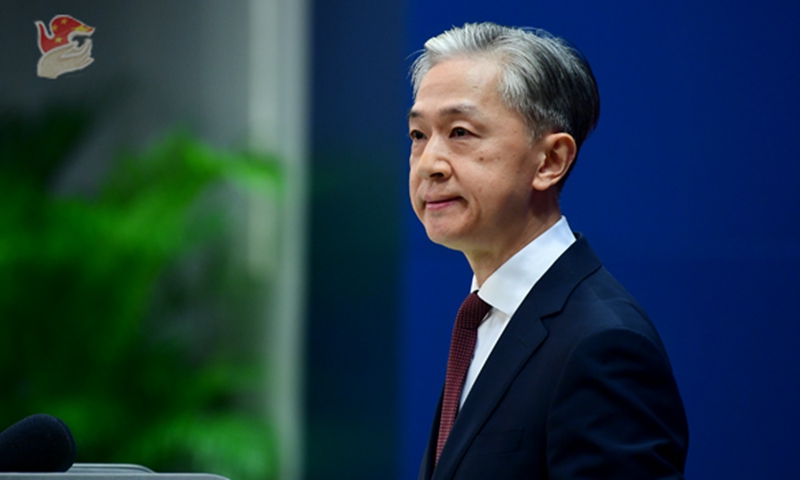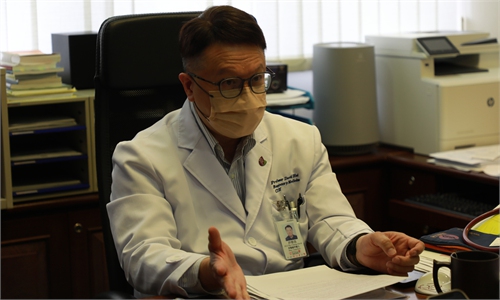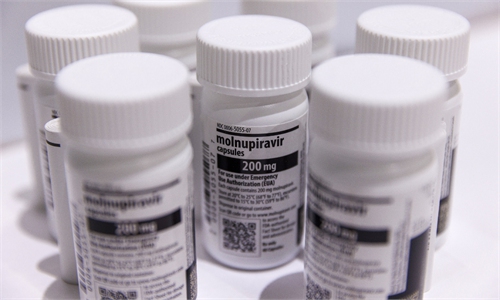
Foreign Ministry Spokesperson Wang Wenbin Photo: Chinese Foreign Ministry
China has maintained close communication with the World Health Organization (WHO), holding five technical exchanges over the past month with the latest one on Wednesday, a spokesperson of the Chinese Ministry of Foreign Affairs said on Thursday, stressing China's openness and transparency on the issue.
Spokesperson Wang Wenbin said at Thursday's routine press briefing that the two sides, based on previous communications, discussed current clinical treatment, epidemic development, monitoring and vaccination.
Public health authorities have also held bilateral meetings with the EU and Australia over COVID and deepened their cooperation on the issue. Chinese authorities and departments have also continuously shared the genome data of the virus from the latest COVID cases in China via the Global Initiative on Sharing Avian Influenza Data (GISAID), Wang said.
These moves have been recognized by the WHO and the international community. WHO had said multiple times that data provided by China has been helpful for global scientists to learn about the mutations of the coronavirus. WHO's chief for Europe, Hans Kluge, also acknowledged that the ongoing surge in China is not anticipated to significantly impact the COVID epidemiological situation in Europe at this time.
China has always shared its related data in a timely, open and transparent manner, and is willing to continue holding technical exchanges and deepen cooperation with the international community to better cope with the epidemic challenges and protect people's lives and health, Wang said on Thursday.
"We hope that the WHO can scientifically and rationally evaluate China's COVID prevention and control, and make remarks objectively and fairly," Wang noted.
China's infection peak is declining, but the medical system is still in a critical period with regard to the treatment of serious illnesses, prevention and control of rural epidemics, and protection of key populations, the Global Times learned at a public health event on Wednesday.
James Wood, an associate professor from the School of Population Health of the University of New South Wales, told the Global Times in an earlier interview that comprehensive information on the variants circulating in China, including details of how samples are selected for sequencing, are of the highest interest.
It is good to see increased sequence data being uploaded to GISAID from China, said Wood, expressing the hope that more details on how these are chosen for collection can be provided to understand how representative this data is of community infections.
Liang Wannian, head of China's COVID-19 response expert panel under the NHC, noted on Wednesday that China has reported all the variants that it has detected to the WHO and will continue to fulfill its responsibility in tracking new variants.
To carry out this task, China has set up specialized groups and established tracking stations across the country, including at entry and exit points at each port, and medical institutions at various levels, Liang said.
Global Times



